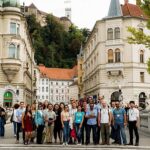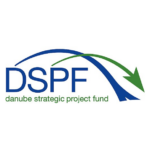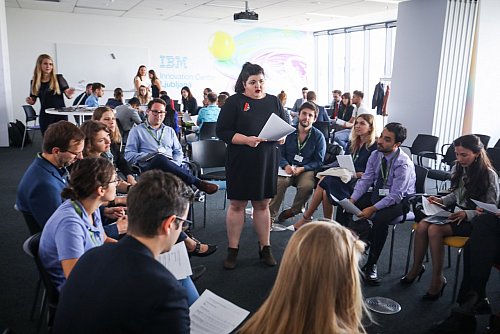HOW CAN REGIONAL COOPERATION CONTRIBUTE TO SOLUTIONS FOR THE CURRENT GLOBAL CHALLENGES?
A bit less than 70 young professionals between 18 and 35 years old from 35 counties spent last three creative and positive days Ljubljana, Slovenia. 30 of them are representatives of 12 Danube countries and had unique opportunity to critically contribute to the regional dimension of their talks and workshops.
Main conclusions and policy proposals could be summed up as a call for not only an active integration of young experts into new policy making, but as well into its implementation. They want actively contribute to the reforms and changes that they will have to live with.
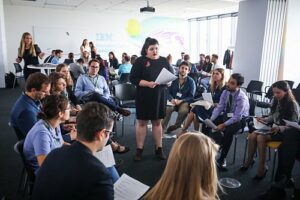 Problem solving workshop was held on Saturday morning on 2030 Agenda, brainstorming on steps towards 2030 goals, shared responsibilities and common sustainable future. Participants were divided into seven working groups and shaped ideas that would contribute to better world in a decade or two. Sustainable Food Plan Design was selected as most innovative and realistic at once and consequently one of their members selected to be panelist at BSF the discussion where he will share the podium with prominent politicians form the United Nations, European Union, United Arab Emirates and wider, CEOs and Academics.
Problem solving workshop was held on Saturday morning on 2030 Agenda, brainstorming on steps towards 2030 goals, shared responsibilities and common sustainable future. Participants were divided into seven working groups and shaped ideas that would contribute to better world in a decade or two. Sustainable Food Plan Design was selected as most innovative and realistic at once and consequently one of their members selected to be panelist at BSF the discussion where he will share the podium with prominent politicians form the United Nations, European Union, United Arab Emirates and wider, CEOs and Academics.
Afternoon hot discussion touched the artificial intelligence from an interesting angle – exploring practical ways for human-machine cooperation. Interesting speakers enlightened numerous dimensions from business, legal, academic and practical viewpoint, responsibility and liability insurance being just two of them. At the end everyone agreed that technology should serve people and not vice versa, though the humankind will have to adapt to the technological changes rather quick. The evolution is happening slowly, while technological changes are happening too fast for us to adapt the social, legal and normative system.
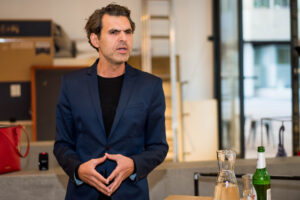 Day continued with passionate view of a journalist and media presenter Ali Aslan on world and its challenges in 60 minutes, where participants shared their concerns – on how the youth can contribute to the liberal democracy, how can they fight misinformation, add emotions to the policy debates. He called for young experts to be vocal, outspoken and laud, not to think only about their views but think about as well on the ones that are might not represented at debates.
Day continued with passionate view of a journalist and media presenter Ali Aslan on world and its challenges in 60 minutes, where participants shared their concerns – on how the youth can contribute to the liberal democracy, how can they fight misinformation, add emotions to the policy debates. He called for young experts to be vocal, outspoken and laud, not to think only about their views but think about as well on the ones that are might not represented at debates.
In the evening participants sat around five different tables to tackle the most pressing dimensions of the Western Balkans policies (economy, youth participation, security, reconciliation and Euro-Atlantic future), which generated some great ideas as participants from other parts of Europe and world shared their perspective on the region. Regional cooperation was pointed out as one of the points that should be utilized the most.
Sunday continued in a practical manner with morning brief with Khalifa Al Ansari, research analyst at the Prime Minister’s Office in the United Arab Emirates on how to take the satisfaction and happiness of the people into policy planning and development. GDP that is currently worldwide used as most universal measure of standard of living needs some
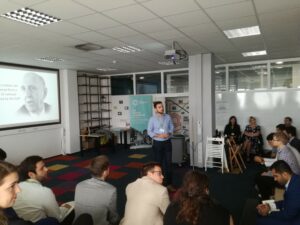
additional indicators, as it is not telling much about the satisfaction of the people. He presented how the UAE are including the happiness drivers in all levels of policy process to make sure that policies have wider impact than only the most obvious one. This is helping to design the state policies that are closer to people and are helping to bridge the divide between people and institutions, consequently increasing the trust and satisfaction in general.
The 2018 Young BSF is linking the themes and role of youth with the main event, Bled Strategic Forum that starts tomorrow, 10 September. Four topics from the main event have been selected and discussed from the youth perspective, while four outstanding young leaders have been selected to participate as speakers at the main event. They will represent the views of young people, not only their own views, but also the views of all participants of the Young BSF. This will add value to BSF, bringing innovative solutions and shedding light on youth perspectives. Youth will have an opportunity to meet the leaders from the governmental, business and non-governmental sectors and join them in discussions addressing salient issues. The Bled Strategic Forum selected discussions where young leaders will be actively contributing to the discussion:
Alone We Fail: Working Together for a Sustainable Future: Mr Miloš Popović, United Nations Office in Montenegro
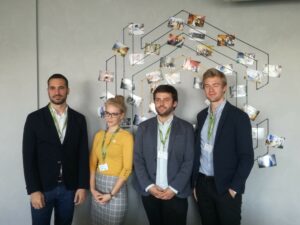
Being Human in the Age of Technology: Mr Jacob Hjortshøj, Office of the Tech Ambassador of Denmark
Bridging the Trust Divide between People and Institutions: Ms Zsofia Racz, United Nations Youth Delegate of Hungary
Western Balkans: Lost Years or New Hope?: Mr Adnan Ćerimagić, Analyst at the European Stability Initiative, Germany
Read more about the Young Bled Strategic Forum discussions in last days here
Some discussions of the Bled Stratg can be followed live via Bled Strategic Forum Facebook profile.


